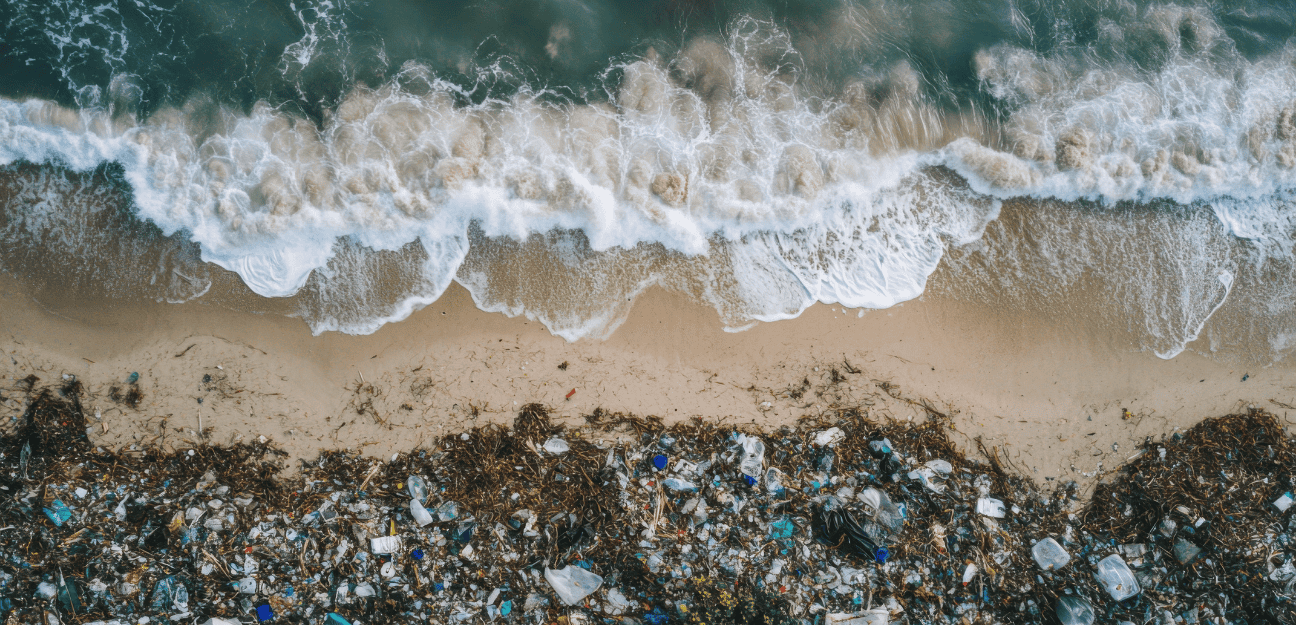Integrated Strategies for Protecting and Preserving the Caribbean Sea: A Call for Sustainable Management and Regional Cooperation

By Nelson Rangel-Buitrago
Programa de Física, Facultad de Ciencias Básicas, Universidad del Atlántico, Km 7 Via Puerto Colombia, Barranquilla, Atlántico, Colombia.
The Caribbean Sea, renowned for its crystal-clear waters, vibrant coral reefs, and diverse marine life, is not only a natural wonder but also a critical resource for the region's socio-economic development. It supports fisheries, tourism, and cultural heritage, directly impacting the livelihoods of millions of people. However, this marine environment is under severe threat from various human-induced pressures, including coastal erosion, and the impacts of climate change. Protecting and preserving the Caribbean Sea requires a comprehensive, integrated approach to manage its resources sustainably, involving all stakeholders from local communities to international bodies.
Coastal erosion is a critical issue affecting the Caribbean region. The natural process of shoreline retreat has been significantly accelerated by human activities, such as sand mining, construction of coastal infrastructure, and removal of natural vegetation. These activities disrupt sediment transport dynamics and reduce the natural adaptive capacity of coastlines to respond to environmental changes. Coastal erosion management needs to focus not only on reactive measures like hard engineering but also on proactive strategies that consider the root causes of erosion, such as the Intervention Concerning Erosion Causes (ICEC) approach. This strategy emphasizes restoring natural protective habitats and removing anthropogenic structures that impede natural sediment flow.
The Caribbean Sea is highly vulnerable to the impacts of climate change, including rising sea levels, increased sea surface temperatures, and more frequent and intense tropical storms. These changes threaten to exacerbate existing problems like coastal erosion and coral bleaching, leading to further loss of biodiversity and coastal habitats. Coral reefs, which act as natural barriers protecting coastlines from storm surges and wave action, are particularly susceptible to climate change impacts. The degradation of these ecosystems not only affects marine life but also compromises the safety and livelihoods of coastal communities.
Several coastal and marine management practices are currently in place across the Caribbean, including the use of hard and soft engineering solutions to combat coastal erosion, marine protected areas (MPAs) to conserve biodiversity, and regulations. However, these approaches often suffer from a lack of integration and coordination among stakeholders. Hard engineering solutions, like seawalls and groynes, can provide immediate relief but often lead to negative consequences, such as increased erosion downstream or loss of beach areas. Moreover, these strategies can be costly and may not be sustainable in the long term, especially in the face of climate change.
To effectively protect and preserve the Caribbean Sea, there is a need to shift towards more integrated and sustainable management practices that consider the entire ecosystem. An Ecosystem-Based Management (EBM) approach can provide a more holistic framework for managing marine and coastal resources. This approach emphasizes the use of natural habitats, such as mangroves, coral reefs, and seagrass beds, which provide natural coastal defense, enhance biodiversity, and support fisheries.
The Intervention Concerning Erosion Causes (ICEC) strategy, adapted to the Caribbean context, would involve addressing the underlying causes of coastal erosion. This includes the restoration of natural habitats that serve as buffers against wave action and the removal of structures that disrupt natural sediment flows. Additionally, promoting sustainable land use practices can help mitigate the adverse effects of erosion on.
Community Engagement and Local Governance are also crucial components of an integrated management strategy. Engaging local communities in decision-making processes ensures that management practices are culturally appropriate and locally relevant. Furthermore, strengthening local governance structures and building capacity for sustainable management can empower communities to take an active role in protecting their coastal and marine environments.
Innovative solutions, such as marine spatial planning (MSP) and the use of advanced monitoring technologies, can enhance the effectiveness of marine and coastal management in the Caribbean. MSP allows for the strategic allocation of marine space to balance ecological, economic, and social objectives, reducing conflicts among users and promoting sustainable use. Additionally, new technologies for monitoring water quality, coral health, and fish populations can provide real-time data to inform adaptive management practices.
International organizations and regional bodies play a crucial role in supporting the sustainable management of the Caribbean Sea. Organizations such as the Association of Caribbean States, United Nations Environment Programme (UNEP) and the Caribbean Community (CARICOM) provide platforms for policy dialogue, capacity building, and the sharing of best practices among member states. These organizations help harmonize national policies with international standards, ensuring a coordinated response to shared environmental challenges. For instance, the Cartagena Convention, a legally binding instrument for the protection and sustainable development of the Caribbean Sea, fosters regional cooperation in addressing marine pollution, biodiversity loss, and climate change impacts. Strengthening such frameworks and ensuring robust implementation and enforcement can significantly enhance the effectiveness of conservation efforts in the region.
Another critical aspect of protecting the Caribbean Sea is fostering a culture of environmental stewardship through education and public awareness campaigns. By educating local communities, particularly youth, about the importance of marine conservation and sustainable practices, there can be a shift towards more environmentally friendly behaviors. Public awareness campaigns can highlight the tangible benefits of healthy marine ecosystems, such as their role in supporting tourism and fisheries, and their importance in protecting coastal communities from storm surges and erosion. Engaging the public through citizen science initiatives and community-led conservation projects can further strengthen local capacity to manage and protect marine resources, building resilience against environmental changes and fostering a sense of shared responsibility for the future of the Caribbean Sea.
Protecting and preserving the Caribbean Sea is a complex challenge that requires a coordinated, multi-faceted approach. By combining scientific research, policy development, community involvement, and regional cooperation, it is possible to address the current and future challenges facing this critical marine environment. Implementing integrated management strategies, such as ecosystem-based management and the ICEC approach, and embracing innovative solutions can help ensure the long-term sustainability of the Caribbean Sea for future generations.



